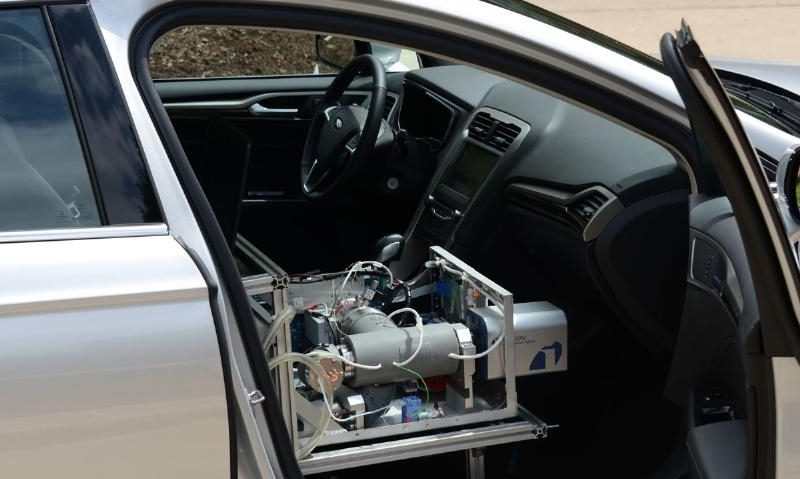Your Stash Won’t Be Safe From this Drug Sniffing Car!
Alexander Neil / 9 years ago

In Texas, a chemistry professor has made an unusual aftermarket modification to his electric Ford sedan, a drug sniffer. The device is capable of detecting trace amounts of illegal substances present in the air and then track them to the source with a surprising level of accuracy.
Dr. Guido Verbeck of the University of North Texas originally began work on the device as a system to measure the pollution levels around highways and for other environmental purposes. Verbeck and his team quickly realized the true potential of the device, telling Vice News that it “could be used to precisely determine the source of any unique chemical profile traveling through the air — including those associated with many types of drugs.”
In order to test the system, Verbeck set up a fake mobile home meth lab rigged to pump “drug fumes” out of a vent into the air. These fumes were picked up by the device from as much as a quarter-mile away and then “When certain types of chemical strains are detected, the computer kicks on and starts calculating where that strain is coming from,” said Verbeck.”Within a matter of minutes, the location is pinpointed within a 4 percent error.”
The device sits in the passenger seat of the sedan and functions much like a mass spectrometer, isolated from the road thanks to an electromagnetic suspension system and employing a small air intake near the rearview mirror to collect samples. When a target substance is detected, an onboard computer kicks in and calculates the source location-based on a number of factors including level of diffusion across a number of locations and weather conditions such as wind speeds and temperature. From this, it is capable of detecting anything from large-scale drug manufacturing to the smoking of a single joint.
This technology is still a way away from being used in the real world, however, Verbeck believes that a production version of the device could cost as little as $80,000 to $100,000. There is the obvious appeal to law enforcement agencies who would love to get their hands on a car that could allow them to detect drug labs simply by driving around. Of course, there is no legal precedent for whether searches made by such a system would be considered illegal searches or not although a DEA agent questioned by Vice News didn’t believe there would be any issue. “If it’s in the air, it’s like the air waves,” Special Agent Patterson said. “They’re not owned by anybody.”



















